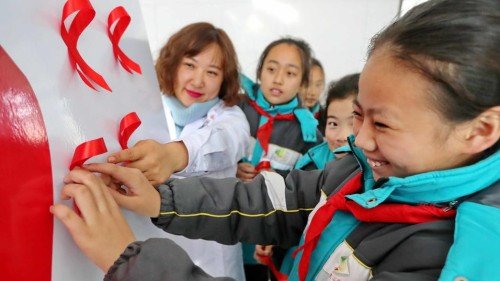
Introduction:
Sex education is a topic of paramount importance in any society, as it plays a crucial role in shaping individuals' understanding of their bodies, relationships, and sexual health. In recent years, China has recognized the significance of comprehensive sex education and has taken strides towards implementing it in schools and communities. In this blog post, we will delve into the state of sex education in China, exploring its evolution, challenges, and current initiatives.
Evolution of Sex Education in China:
Historically, China has maintained a conservative approach towards discussing sexuality and sexual health openly. Traditionally, sex education was primarily focused on the prevention of sexually transmitted infections (STIs) and contraception. However, societal changes, increased globalization, and the recognition of the importance of holistic education have paved the way for a more comprehensive approach.
2 / 2
Historically, sex education in China was primarily focused on preventing sexually transmitted infections (STIs) and contraception. Traditional Chinese values placed an emphasis on modesty and avoiding sexual discussions, and as a result, sex education was not widely taught in schools. In the 1980s and 1990s, with the onset of China's economic reforms and increasing globalization, attitudes towards sex and sexuality began to change, and the need for comprehensive sex education became more apparent.
In the early 2000s, the Chinese government began to promote sex education in schools, recognizing its importance in promoting healthy sexual behavior and preventing STIs and unintended pregnancies. However, the initial efforts were met with resistance from conservative groups, who argued that sex education would encourage promiscuity and undermine traditional values.
Despite these challenges, the Chinese government continued to push for sex education, and by 2011, all primary and secondary schools in China were required to teach a basic curriculum on sexual health. The curriculum covered topics such as reproductive anatomy, STIs, and contraception, and aimed to promote healthy sexual behavior and prevent unintended pregnancies and STIs.
In recent years, there has been a growing recognition of the need for more comprehensive sex education, which includes discussions on relationships, consent, and gender identity. In 2019, the Chinese government released new guidelines on sex education, which aimed to standardize the curriculum and promote a more comprehensive approach to sex education. The guidelines emphasized the importance of promoting healthy attitudes towards sexuality, encouraging mutual respect and responsibility, and promoting gender equality.
Overall, sex education in China has evolved from a focus on preventing STIs and unintended pregnancies to a more comprehensive approach that promotes healthy attitudes towards sexuality and relationships. Despite challenges and ongoing cultural resistance, China's efforts to promote comprehensive sex education show a growing recognition of its importance in promoting public health and wellbeing.
Challenges and Taboos:
Despite progress, sex education in China faces several challenges. One significant obstacle is the persistence of societal taboos and cultural norms surrounding the topic. Discussions on sex and sexuality are often considered sensitive and uncomfortable, leading to a reluctance to address these matters openly. This reticence can hinder the dissemination of accurate information and perpetuate misinformation.
Another challenge lies in the lack of standardized sex education curriculum across the country. While some regions have made considerable advancements, others still struggle to implement comprehensive programs due to varying cultural, political, and religious beliefs. This inconsistency poses a challenge in ensuring that students receive equal access to accurate and age-appropriate information.
Current Initiatives:
In recent years, China has witnessed a shift towards a more progressive approach to sex education. Efforts have been made to develop national guidelines to standardize sex education curricula across schools, ensuring that students receive comprehensive and accurate information. These guidelines aim to address a range of topics, including anatomy, reproductive health, relationships, consent, gender identity, and sexual orientation.
Additionally, the Chinese government has recognized the importance of parental involvement in sex education. Parent-child communication on sexual matters is actively encouraged, with resources and guidelines provided to help parents engage in these conversations effectively. This approach seeks to bridge the gap between formal education and familial guidance.
Community organizations and NGOs also play a crucial role in supplementing formal sex education efforts. They provide platforms for open discussions, workshops, and campaigns aimed at raising awareness, dispelling myths, and empowering individuals to make informed decisions about their sexual health.
The Way Forward:
While progress has been made, there is still room for improvement in sex education in China. It is essential to continue destigmatizing discussions on sexuality and providing accurate information to young people. Collaboration between the government, educators, parents, and community organizations is vital in ensuring comprehensive and inclusive sex education reaches every corner of the country.
Conclusion:
Sex education in China has come a long way, with a growing recognition of its significance in promoting healthy attitudes towards sexuality, relationships, and personal well-being. By addressing societal taboos, standardizing curricula, and promoting parental involvement, China is taking steps towards a more informed and empowered generation. The journey towards comprehensive sex education is ongoing, and continued efforts are crucial to creating a society that embraces sexual health, consent, and inclusivity.







